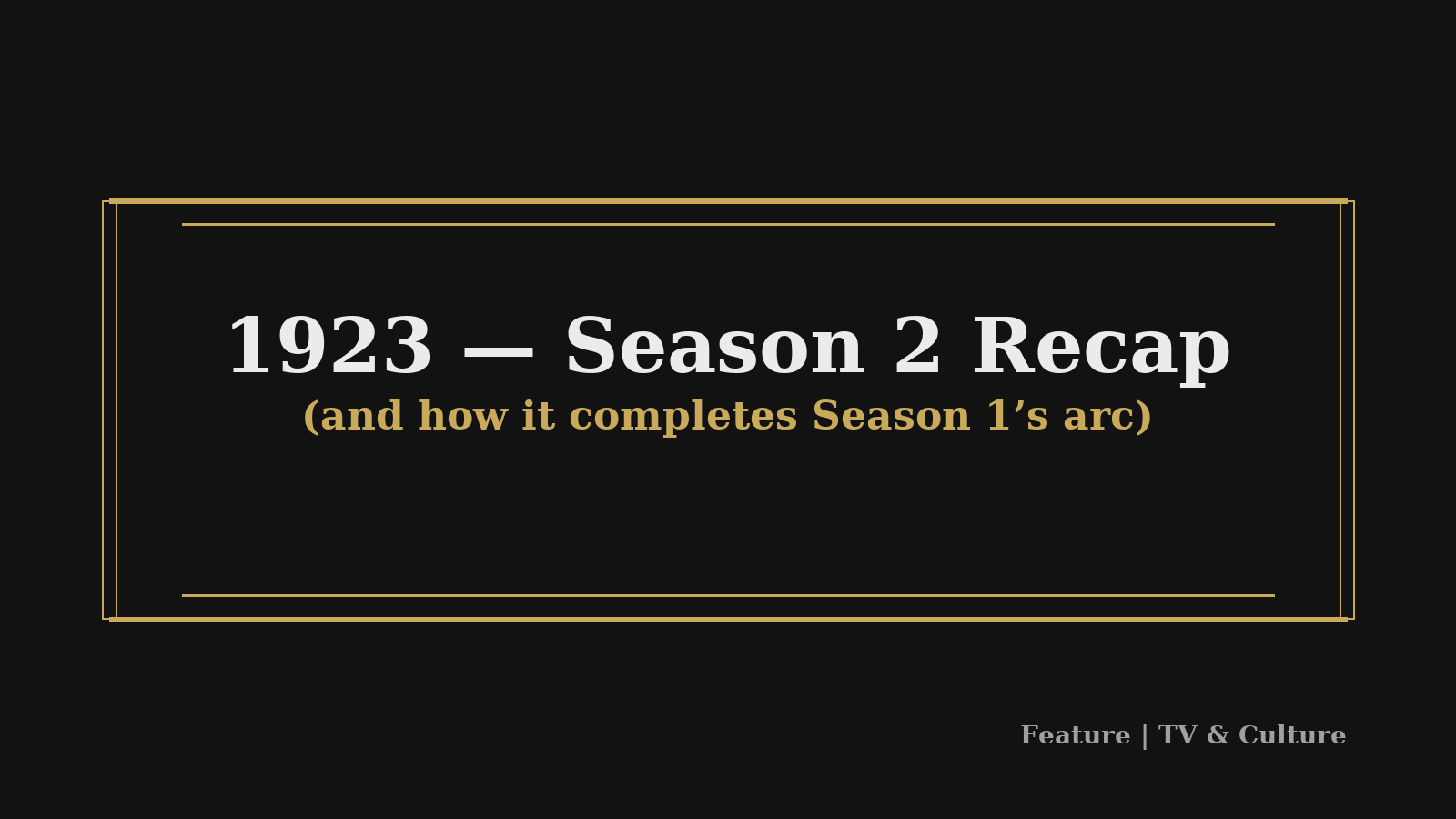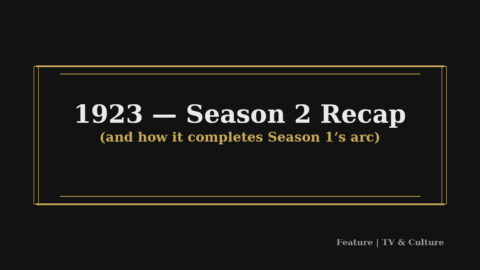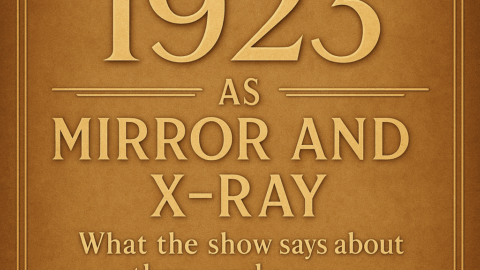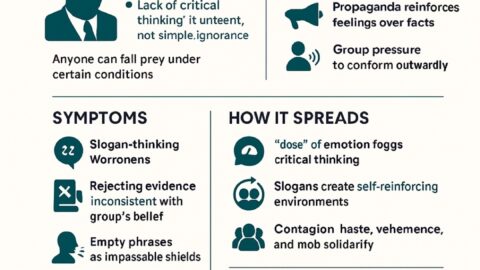Why 1923 (Season 2) matters for learning corruption
Watching and analyzing 1923—especially Season 2 as the completion of Season 1’s arc—isn’t just entertainment; it’s a compact seminar on how corruption grows roots. The show traces how private appetites become public policy, how “protection” morphs into predation, and how good people get conscripted by systems they think they’re merely surviving. Season 2 closes the loops Season 1 opened: land and livestock become leverage, law becomes a costume for theft, and families learn that power without virtue always bills the innocent.
Using Adler’s four levels to see the machinery
- Elementary (What happens?): We track the plot beats—who gains, who loses, who signs what paper under what pressure. Season 2’s resolutions clarify motives that Season 1 only foreshadowed, revealing which alliances were transactional and which were covenantal.
- Inspectional (What’s the structure?): With a quick, strategic skim, we map the institutions—ranch, courthouse, bank, railroad, church, and the gun—and notice the handoffs between them. Corruption here is a relay: when one actor can’t take the baton, another “respectable” actor does.
- Analytical (How does it work?): We examine causes and claims. The language of order (“stability,” “development,” “security”) rationalizes dispossession; emergency becomes policy; policy becomes precedent. Season 2 shows how gatekeepers convert personal vice into legal custom—and why reformers who fight only personalities lose to entrenched incentives.
- Syntopical (What does it mean across works and history?): Setting 1923 beside Bastiat’s “legal plunder,” Bonhoeffer’s “collective stupidity,” and American frontier law, we see a timeless pattern: when stewardship is not protected, extraction is moralized. The series becomes a case study for our larger tapestry—Covenant vs. Empire, care vs. control.
The payoff
Read this way, 1923 becomes a field guide: Season 1 teaches you where to look; Season 2 teaches you what you’re actually seeing. By the end, you can name the moves—how corruption recruits language, law, and loneliness—and you’re better equipped to spot those moves in your county, your workplace, even your family estate decisions.
The board at the end of Season 1
Season 1 left the Yellowstone hanging by a thread. Jacob Dutton was shot and barely breathing, John Dutton (Spencer’s brother) was dead, Jack and Elizabeth were blooded by violence before their marriage even took hold, and Teonna Rainwater fled a church-run boarding school after killing to survive. Two new forces stepped onto the board: Banner Creighton, the embittered sheepherder who declared open season on the Duttons, and Donald Whitfield, a silver baron who uses laws, liens, taxes and terror the way other men use rifles. Cara’s letter to Africa—“Spencer, come home. This is a war.”—was the hinge between seasons.
Season 2 answers that letter—at brutal cost.
What Season 2 does, in one sentence
It turns Season 1’s promise of war into open conflict on two fronts: guns and courts.
The Duttons vs. Whitfield & Banner: from feud to campaign
Whitfield’s strategy is Season 2’s engine. He squeezes from three directions:
- Paper (taxes, liens, a judge who’ll listen),
- Public order (selective enforcement, like the miscegenation arrest of Zane’s wife to break cowboy morale), and
- Private violence (Banner’s men, night raids, a depot ambush).
Banner, once a man raging against scarcity, admits he now serves a darker appetite—Whitfield’s pleasure in making others suffer. By midseason he’s scheming exits, not victories.
The Dutton counter is the opposite of subtle: hold the house, hold the herd, hold each other. Cara keeps the ranch combat-ready, Jacob holds the county line with a badge when it will still help and without it when it won’t, and Zane, Jack, and the hands turn roofs and porches into redoubts. When Spencer finally steps onto Montana soil, the balance tilts: the depot firefight blinks into chaos; the night attack on the Yellowstone meets a hunter who fights at arm’s length in the dark.
Result: Whitfield’s invincibility myth collapses. Season 1 introduced him as an irresistible modern force; Season 2 ends with him confronted, cornered, and forced to say the name of the woman whose death his war caused.
Spencer & Alexandra: the letter answered
Season 1 sent Spencer to Africa to outrun his ghosts and dropped Alexandra into his life like a lightning strike; Cara’s letter broke the spell. Season 2 is the long, savage road back: visas, storms, bad men, and one breathtaking decision—Alex literally leaps from a moving train to meet Spencer at Livingston.
The reunion is real—and then the frontier sets its price. Alex’s body, wrecked by cold and the road, chooses the baby over herself. She delivers John (named for Spencer’s brother) and dies. Season 1 promised Spencer would be the family’s avenger; Season 2 shows what that vow costs him. He stays in Montana, memory as his only comfort, and turns grief into purpose.
How this completes Season 1’s arc: Season 1 asked whether the letter would be answered; Season 2 answers it, then asks whether Spencer will still fight once love is gone. He will.
Cara: the quiet general
Season 1’s heartbeat becomes Season 2’s nerve. Cara manages men, medicine, and morale. She keeps Elizabeth from breaking, disciplines Jack without breaking him, and turns the house itself into a fort. When the fight comes to the dooryard, Cara is not the last line—she’s the first. Season 1 showed her will; Season 2 reveals her command.
Jack & Elizabeth: vows under siege
In Season 1 they were a promise; in Season 2 they’re a test. The winter is a gauntlet—wolves, shots, rabies shots, and the realization that love on the Yellowstone is mostly logistics and courage. Their happiest moment—pregnancy—arrives wrapped in fear, then becomes a different chapter entirely as Elizabeth heads east to find a life she can survive. Cara frames the lesson Season 1 began: marriage here isn’t romance first; it’s resolve first.
Teonna Rainwater: from flight to freedom
Season 1 built her escape; Season 2 gives her a day in court—and a judge who can only dismiss because every witness is dead. Marshal Mamie Fossett recognizes the truth Teonna blurts on that wind-cut ridge: she killed those who beat, raped, and tried to cook her alive; she refuses a gallows disguised as “salvation.” Where Season 1 let Teonna run, Season 2 lets her walk—westward, toward a life she names for herself.
Law vs. Justice (and why both matter)
Season 1 showed what badges can’t or won’t do. Season 2 tests every tool:
- Courts (Zane’s wife jailed under racist statute; Teonna’s case tossed because the state can’t prove it),
- Sheriffs & Marshals (McDowell tries to avoid a war; Mamie refuses to manufacture one), and
- Personal verdicts (Cara on the porch, Jacob at the station, Spencer in Whitfield’s dining room).
The show’s answer is the same across seasons: in 1923, “the law” is a weapon the powerful rent by the hour; justice is what families and outnumbered officers cobble together in the gaps.
Sheep vs. Cattle becomes Land vs. Money
Season 1 framed the old Western feud—sheep cutting fences vs. cattle guarding grass. Season 2 widens the lens: Whitfield isn’t after grazing; he’s after title. He uses liens and back taxes the way Banner used rifles, because America’s modern gold rush is clerical. That’s the pivot between seasons: yesterday’s war was over grass; today’s war is over paper that says who owns where the grass grows.
The “modern” world keeps arriving
What Season 1 introduced—telephones, motorcars, airplanes—Season 2 exploits. Whitfield sells tourism as the new vein richer than silver: pave roads, fly guests in, then monetize winter. The investors’ map lands right on Dutton country; so do the trucks that carry raiders under headlamps. Technology doesn’t civilize the conflict; it accelerates it. The land is the same; the extraction model is new.
Where Season 2 leaves Season 1’s threads
- Cara’s Letter → Spencer’s Return: The plea becomes a body at the gate, a rifle in the yard, and a reckoning in a mansion.
- Whitfield’s Debut → Whitfield’s Day in Court of One: Last season crowned him; this one cages him.
- Teonna’s Escape → Teonna’s Choice: Running for her life becomes choosing a life.
- Jack/Elizabeth’s Wedding-Blood → Separation-with-Love: Their bond survives, but the frontier dictates terms.
- Zane’s Loyalty → Zane’s Cost: His family pays for his brand; the brand refuses to abandon his family.
The cost of holding a place
Both seasons repeat one thesis: to keep land you must pay twice—once in blood, once in grief. Season 1 made the down payment. Season 2 clears the lien long enough for a baby named John to drink goat’s milk on a porch Cara defends and Spencer now patrols. The Yellowstone survives winter, court, and siege; tomorrow’s fight (tourism, roads, capital) is already idling at the county line.
Season 1 promised a war to come. Season 2 delivers the war—and the bill.







